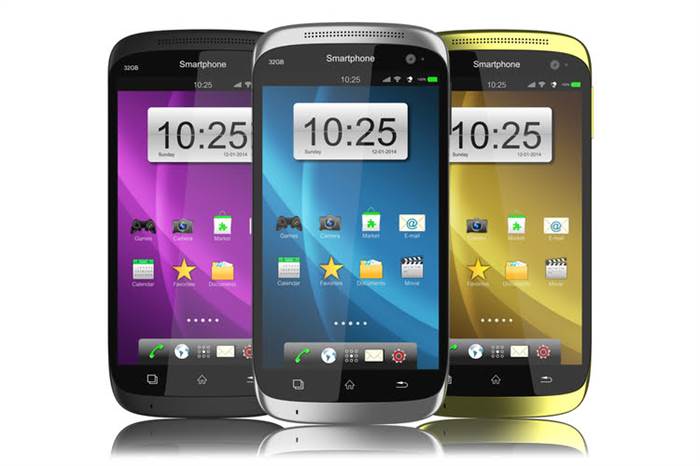Retail inventory management software can integrate with barcode scanning, RFID and tracking technologies. Square for Retail bundles payment process and point of sale (PoS), as well as vendor and inventory management features, for small retailers. Knowledge management software can help them in retail training and development and prepare for conversations with customers that require in-depth information on the product. In case they are stuck in a support conversation, they can go back to the documentation and build a seamless experience for customers. Security cameras, alarms, electronic article surveillance system, security gates, access control systems, and network security form a comprehensive store security system. Together with fire or smoke alarms and environmental controls, retail security solutions and systems can help ensure a safe environment for the store and prevent damage to the property or business.

The type of system you choose should be based on the needs of your business. As noted, keeping all your business data in one central location and putting the right security measures in place can help you better protect it from potential threats. This data is typically mission-critical; it’s the information you need to make decisions about your business.
Why do retailers need inventory management software?
A system of record keeps your business data organized in terms of the types of data in the system and its completeness. It’s a great way to ensure the accuracy of your data while keeping it secure and providing all the types of data you need to make crucial business decisions. An EPOS system speeds up the checkout process so you can serve more customers in less time. It also reduces errors like overcharging or undercharging as items are scanned, and the prices are calculated automatically.
Well, continuous monitoring of customer behaviors and building unprecedented customer experiences is what’s going to help you overcome your competition. And the quickest way to do so is by building a retail knowledge management system. A security system for retail stores, or for security at malls, incorporates commercial security cameras, retail store alarm systems and automated alerts. These features enable security experts in the retail industry to monitor vulnerable areas inside and outside the store and identify incidents that require response or further investigation. Designed for fashion, accessories, health, and beauty products in brick-and-mortar stores, this retail software for small business has a free version available as well as a free trial. Clover offers a 90-day free trial, which, if the software is good enough, is plenty of time to both try it and get addicted to the product.
Level of Knowledge Management in the Retail Industry
We’ll show you how to build a knowledge base (public or private) in minutes. Our video security experts can help you implement the right security system for your business. Although there is no fixed term for data retention, it should only be stored for the maximum period necessary in compliance with any relevant data protection or privacy legislation. This is the most fundamental yet sophisticated must-have tool, and it is absolutely free. With Google analytics academy anybody can do a few webinars to comprehend the tool better. GetResponce is an autoresponder, email marketing automation tool, conversion funnel tool, landing page builder, and webinar software all in one.

However, in-person transactions start at 2.6% plus 10 cents and go up to 3.5% plus 10 cents per transaction, depending on whether you use Register or Register Lite. While Clover doesn’t offer a free POS plan, subscriptions start at $14.95 per month and go up to $175 per month. Depending on your industry, hardware might be included in your monthly cost. One of the best perks of using Square POS for your business is that there is no monthly fee to pay. Processing fees for card-present transactions are 2.6% plus $0.10 per transaction. Higher-volume businesses may prefer seeking a POS system with lower processing costs.
Integrated EPOS
The pros and cons of open source software are a hot topic in software development circles. For advocates of open source, the control you have of the system and the customization capabilities for POS systems and RMS platforms is worth the extra resources (developers) and time that implementation requires. One of the downsides is the upfront cost of the hardware devices you’ll need that commercial RMS providers often lease to customers. There is open source POS software that is free, but some free retail management software is closed source (or hosted).
Consider whether you need an omnichannel solution, what functions it should perform, and what third-party systems you would like to integrate. As a rule, ERP solutions are customizable, so retailers can integrate them with third-party systems or develop specific modules depending on their needs. What they need is retail software that provides store staff with powerful tools to run operations seamlessly and complete tasks on time.
Investing in the right retail POS system is essential for the success of your retail business. The right combination of POS hardware, software, and payment processing solutions can streamline operations, enhance the customer retail software experience, and provide valuable insights for informed decision-making. Consider the specific needs of your business, explore the available options, and choose a retail POS system that aligns with your requirements.
- To successfully integrate manual inputs into an inventory management system, it is important to first understand inventory management.
- We made sure the winners in our best retail ERP software list have at least inventory management, accounting tools and an option of on-premises or cloud deployment.
- If you plan to use a mobile device as your POS terminal, you can use a POS app that doesn’t require any additional hardware.
- Epicor Prophet 21 ERP stands out as a retail ERP solution because it provides the cloud-based modules any small to midsize business needs to manage its departments.
- Square has a built-in payment processing feature and can integrate with all Square hardware.
- Retail POS systems generate detailed reports and customizable dashboards, enabling business owners to identify trends, make data-driven decisions, and implement strategies for growth and improvement.
Keeping your RMS technology secure and up-to-date with essential functionality should not cost profitability. Inquire up front about how frequently the company updates their products, what features and applications are free to maintain, and how they run their customer support operation. Finally, if they do not uphold the terms and conditions of your licensing and service agreement, what are your options for terminating the contract? Implementing retail store management software, business owners automate numerous processes and get a single source of truth that delivers transparent and relevant information about finance, products and customers.